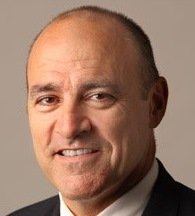
How long do the grafts from coronary bypass surgery last if the patient continues eating a junk food diet?
Is coronary bypass surgery a green light to continue eating a junk food diet, and how long will the surgical bypass grafts last if the patient won’t quit his junk food diet?
About half a million coronary bypass surgeries (aka CABG) are performed in the U.S. every year, and you can believe that out of this gigantic number, a substantial amount of patients continue with their junk food diet after the surgery.
“Many factors determine how long CABG grafts will last,” says Dr. Michael Fiocco, Chief of Open Heart Surgery at Union Memorial Hospital in Baltimore, Maryland, one of the nation’s top 50 heart hospitals.
“The internal mammary artery graft (IMA) is superior to saphenous vein grafts (SVG), with a patency greater than 95 percent at five years and likely at 10 years.”
The saphenous vein comes from the leg. The patency for the SVG is 82 percent at five years, and 65 percent at 10 years, according to a small study. Dr. Fiocco says there are problems with these numbers.
“First, this is a sample of patients; not everyone returns to have their grafts looked at, which used to require cardiac catheterization, but now can be done with CT scan,” says Dr. Fiocco. The CT angiogram will reveal any dangerous narrowing of the arteries.
Dr. Fiocco continues, “Second, this sample includes those who lead a heart healthy lifestyle after surgery and those who didn’t, so the smokers and junk food eaters certainly bring these numbers down.
“Thirdly, a closed graft does not necessarily mean a failed surgery or the need for another operation.
“If you have CABG x 4 or 5, and one graft closes, chances are you are doing fine and won’t need any other intervention.”
There have been no extensive studies on just how damaging a junk food diet (or smoking) is on a revascularized heart.
But do we really need research to know that if a patient continues with a bad diet after coronary bypass surgery, he will shorten the life span of his bypass grafts?
The junky diet is what got him in trouble in the first place (along with any other heart-harmful variables such as smoking, lack of exercise and mismanagement of diabetes).
Dr. Fiocco explains, “Diet and exercise, along with smoking cessation, will improve the longevity of the grafts, but to put a number on it is difficult since the quality of the vein, quality of the artery being sewn to, and the technique are all important as well.
“I tell my patients that they will at least get 10-15 years out of bypass surgery if they follow a heart healthy lifestyle.”










































